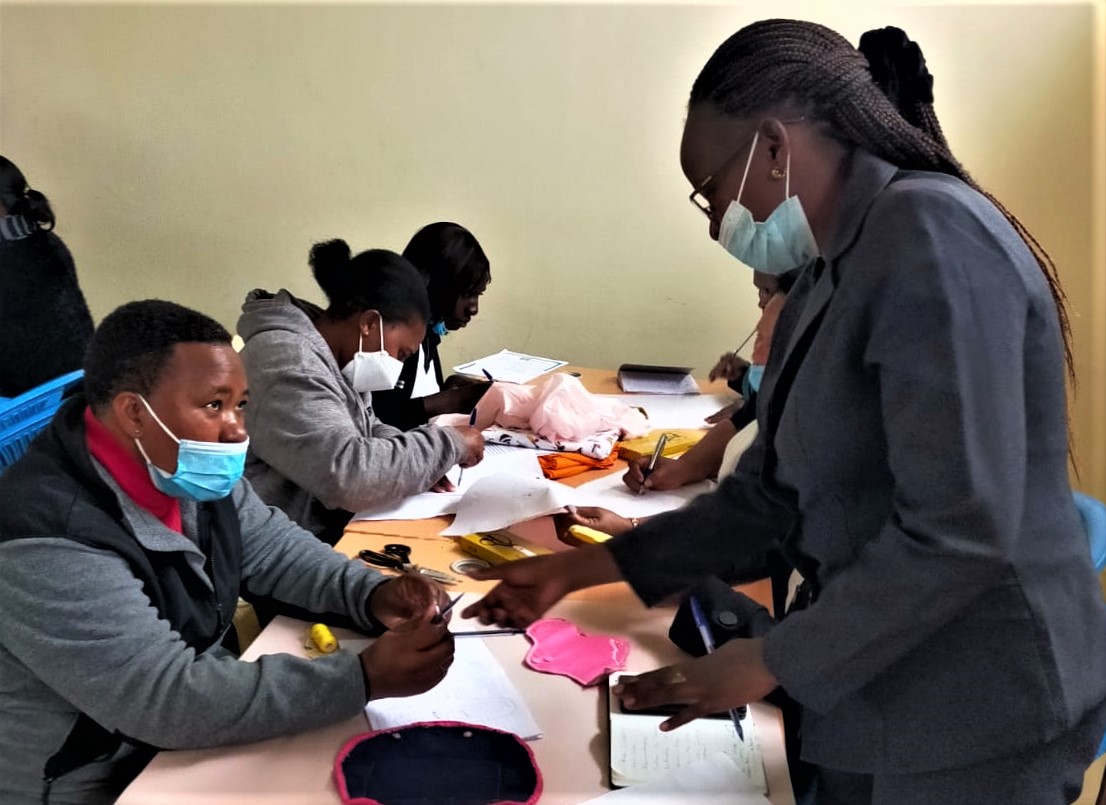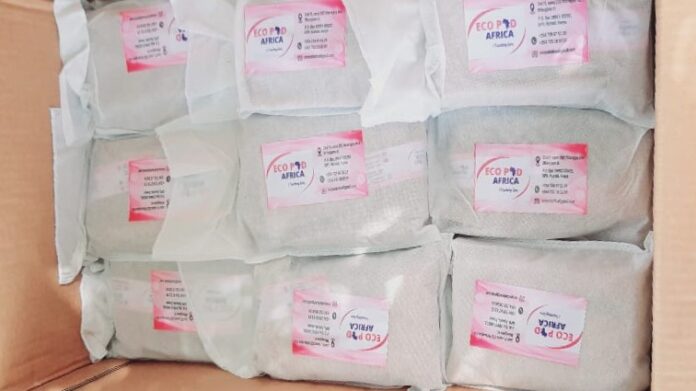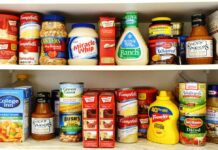By Daniel Kipchumba.
Nairobi, Kenya: For many girls especially growing up in third-world countries, where a majority of its people live below a dollar a day, sanitary pads have been deemed a form of luxury, far from the reach of many, due to the economic inability of many families.
Lucy Githengi, the founder of Eco-Pads, a non-governmental organization in Kenya, registered under community-based organizations, that manufactures reusable sanitary pads, has stepped up to meet the needs of many girls from marginalized regions.
Her idea stems from the lifestyle she lived while growing up. “I grew up in a very difficult environment, poverty surrounded me from every side. I could not afford the basics, I wore torn uniforms, no sanitary towels, shoes were luxury, and on Sundays, my uniforms were my Sunday best.” She says.

Out of that situation, she promised to do something for marginalized girls, like her in rural Kenya. That is to produce reusable sanitary pads, and distribute them for free to needy girls who grew up remembering her promise. That kept her strong each time she was faced with challenges.
Her first breakthrough came in 2012 when she made her first cloth pad, which she did under Raila Educational Centre in Kibera. “I was very happy to have achieved this, and decided to call it Eco-Pads because it is made from fabrics that are locally available.” She says.
Eco-Pad is a reusable sanitary pad, made of soft, comfortable, and waterproof materials, and highly absorptive.
She did her first distribution in 2012 in Kibera slums, and in Marigat in 2013. The two projects were a success and were very happy that this was possible. She’s grateful for the support she got from Fay Sejo, founder of La Femme Coaching in Nairobi, a motivational speaker for women when undertaking the Marigat project, since then, Lucy has done several projects that were more successful.
Eco-pads are for donation; their production is enabled by the support of friends and well-wishers. More than five thousand girls have benefitted from this reusable sanitary towel, so far since its inception. She hopes to get a donor/well-wisher to help her access fabrics and touch the lives of the marginalized girls in the villages, which not many organizations reach.
Eco-Pad is based in Uhuru market along Jogoo road, in Nairobi, she produces around 100 pcs per day, but as time goes on, she hopes to import more quality material, and produce more pieces in the future, subject to the availability of funds now that she depends on donations.

According to Menstrual Health in Kenya, Country Landscape Analysis report, in Kenya, 65% of women and girls, are unable to afford sanitary pads, since commercial sanitary products are highly expensive to purchase in the country, some girls may resort to having sex to pay for items and in the end, get pregnant, or contract sexually transmitted diseases, such as HIV.
Her workshop has around 8 sewing machines, one press button, and a cutting machine, she does uniforms once in a while to help the needy boys and girls, as that’s what she can afford at the moment, although she has been training other CBO’s and NGO’s on how to make the napkins.
She is contemplating how to raise funds to import the fabrics, to produce better-quality pads. “Currently am working on doing a project in Marigat, and Hola, where the sad story of girls digging and sitting on holes during menstruation, has disturbed me.” She opines.
The average Kenyan schoolgirl misses 4 out of 28 days per month – around two weeks every term – because they don’t have sanitary products. This impacts their ability to test well and go on to higher education. Even if some girls don’t drop out of school altogether, they still face challenges when they are absent from school while on their period.














